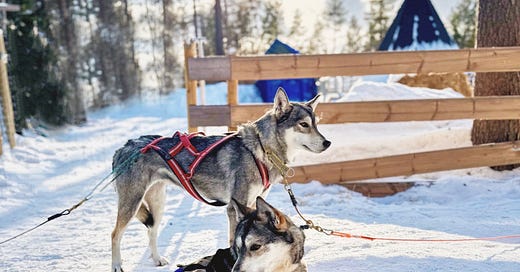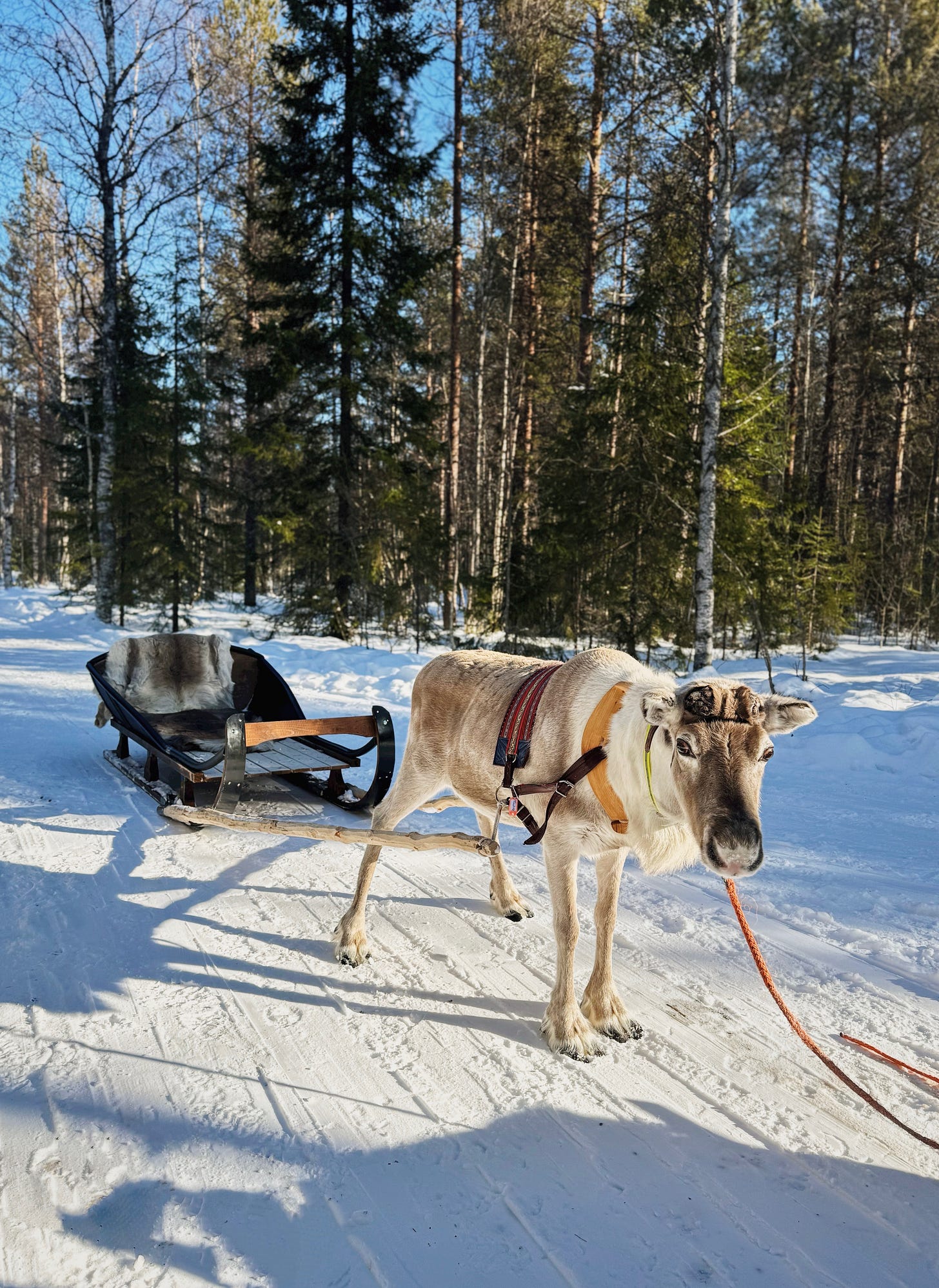Last month, I took a trip to the Arctic Circle, specifically to the Lapland region of Finland. I flew into Helsinki and spent 24 hours acclimating to the colder temperatures and adjusting to the time zone. After that, I flew to Rovaniemi, known as the city of Santa Claus. From Rovaniemi, we traveled to Levi, where I later flew back to New York City from Kittilä. This trip transports you to another world, featuring endless stretches of snow, husky mushing, reindeer husbandry, and ice hotels constructed from scratch each year. If you're lucky, you might even witness the breathtaking northern lights. If you live somewhere so beautiful, how can anyone not be happy?
Finland is the happiest place on earth, 8x over!
Much of Finland experiences the extreme temperatures of the Arctic Circle, with long, dark winter nights and exceptionally long summer days. Despite numerous studies showing a direct correlation between weather and mood, Finns maintain their happiness even in these harsh conditions. Finland has been ranked first in the UN-sponsored World Happiness Report for the eighth consecutive year. Various factors contribute to the happiness of its citizens, including a strong connection to nature, a high quality of life that doesn't rely heavily on material consumption, and robust relationships within the community. How does this translate into action in Finland?
Acceptance of challenges "Sisu"
I recently attended an event where I sat next to a couple: the wife was Korean, and her husband was Finnish. I asked him if he had heard of the happiness report and what he thought about why Finns were considered so happy. He shrugged and replied, "I'm surprised by that. I don't know if we are truly happy or just… not unhappy." His wife then turned to me and said, "I feel like they are kind of just… not very ambitious." There was a slight twinge of judgment in her voice. I understood her undertone as a fellow Korean living in New York City. I also want to point out that South Korea ranks quite low on the happiness index at 58. :)

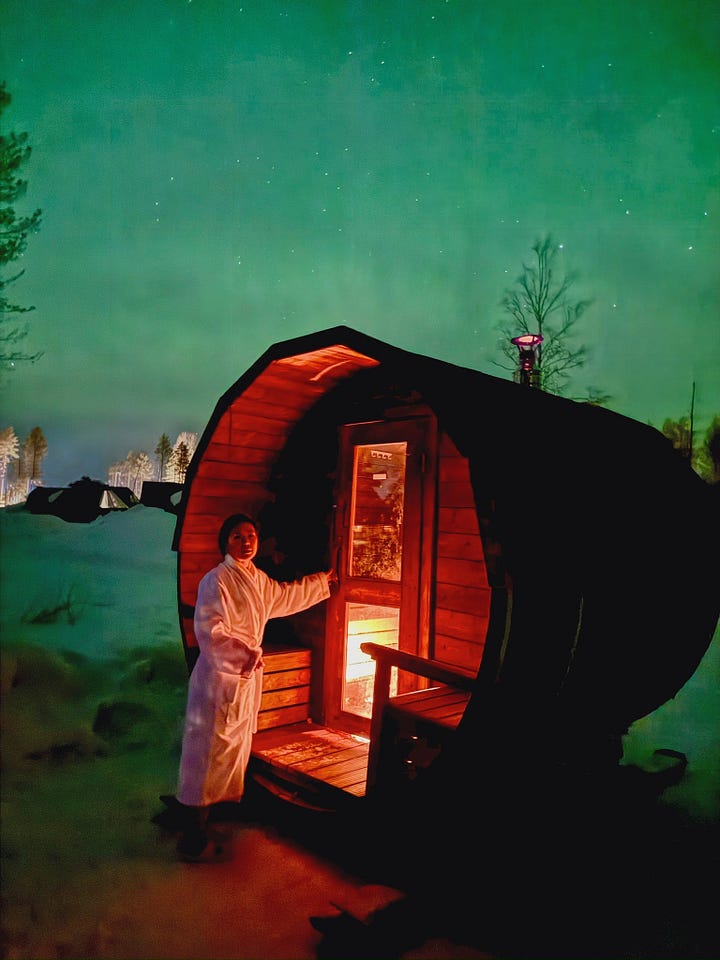
Maybe the key to happiness is not pursuing one but embracing life as is. The Finns embrace challenges through the concept of perseverance, known as "sisu" in Finnish, and develop reliefs like the sauna to endure the harsh winters, all while holding onto their joy and gratitude for life. Acceptance is different from gratitude, and it's also not anti-ambition. In fact, Finland also ranks in the top 10 on the Global Innovation Index. This rating is more qualified to measure one's willingness to strive for a better future than individual income alone in my humble opinion.
Standard of living is important
It's possible to enjoy life when the quality of living is comfortable. A taxi driver we spoke to shared that he spends six months in Lapland during the peak tourist season, then heads south to his summer home. This year-round routine is typical among many Finns. In contrast, if you're a taxi driver in the U.S., you likely face challenges making a living, let alone living in peaceful surroundings. So if you live in a society that doesn't provide adequate baseline living conditions, are you doomed to be unhappy?
How can you feel happy?
The happiness report revealed that individuals tend to be much happier in places where they believe people care about one another. Engaging in acts of kindness and expecting kindness from others contribute significantly to individual happiness. However, fostering a sense of care in a community, let alone a workplace, is challenging. Even in the happiest countries, people often remain pessimistic about the kindness displayed within their communities.
In Lapland, I noticed that many tour companies were small, individually owned businesses collaborating with their community to share resources and revenues. For instance, the snowshoe tour guide I met in the morning also worked with a friend who owned a private ice plunge and sauna facility. Later, he arranged for a driver friend to provide the ride back to the hotel. In the United States, it would be more common for business owners to hire teams to work under them.
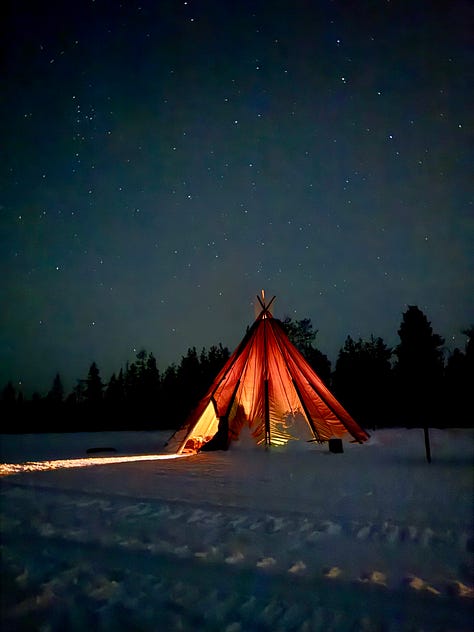


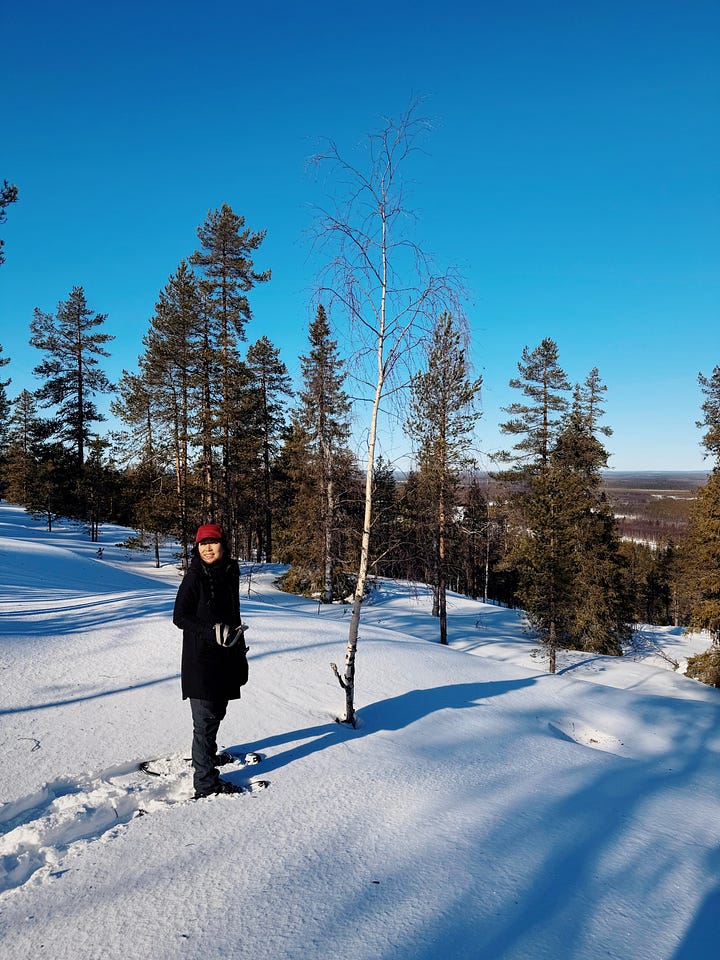
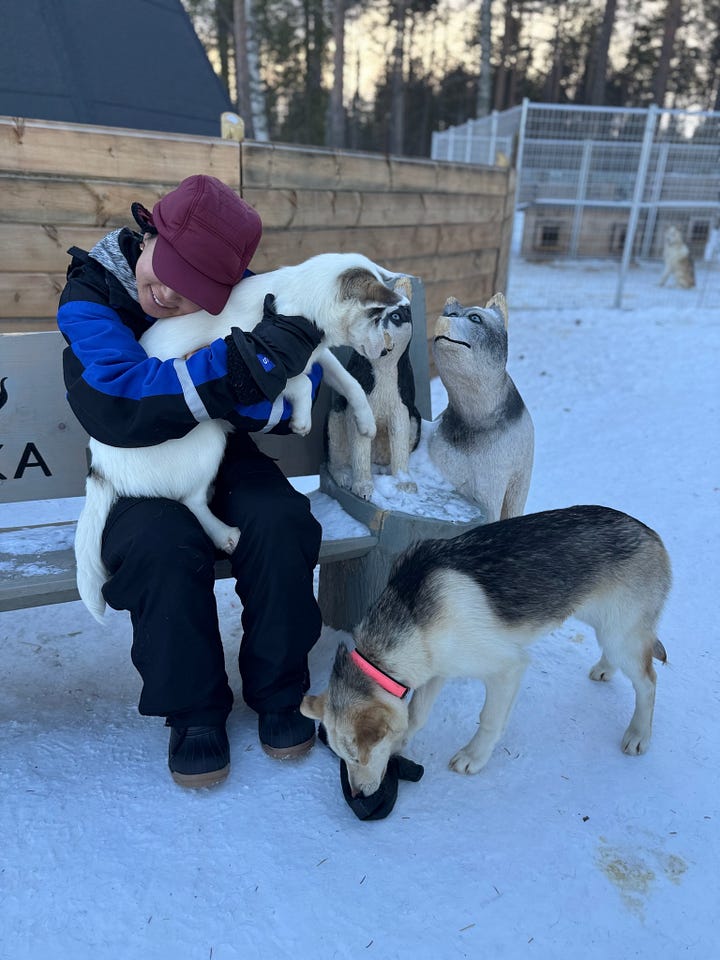
We would all benefit more from understanding how to improve our lives by collaborating on a common goal rather than trying to do everything independently. This is not unlike establishing stable trade relations vs. tariff wars on a global scale. On an individual level, it translates to cooperation.
What do you think is the key to happiness?
What else has been on my mind
How are you using AI or AI-powered tools? I’ve been mostly using them for grammar and copy edits, and I am constantly curious how others are engaging with various tools.
In the recent article “How People Are Really Using AI in 2025” published in HBR, many use Gen AI to aid in therapy, enhance learning, organize life, and find purpose! I am going to explore the latest tools out there to see if any can enhance my own life.
You ask, I answer
I am answering your career dilemmas and questions on Video! Check out my answer to a woman dealing with a “too friendly” co-worker and my advice on how to draw boundaries while establishing a productive relationship:
Submit your career questions here for me to answer :)
In case you missed it
My current hype music
What caught my attention recently
· How math is slashing your electric bills
· First therapy chatbot trial shows AI can provide 'gold-standard' care
· Finally, some good news for older (35+) adults and muscles!

